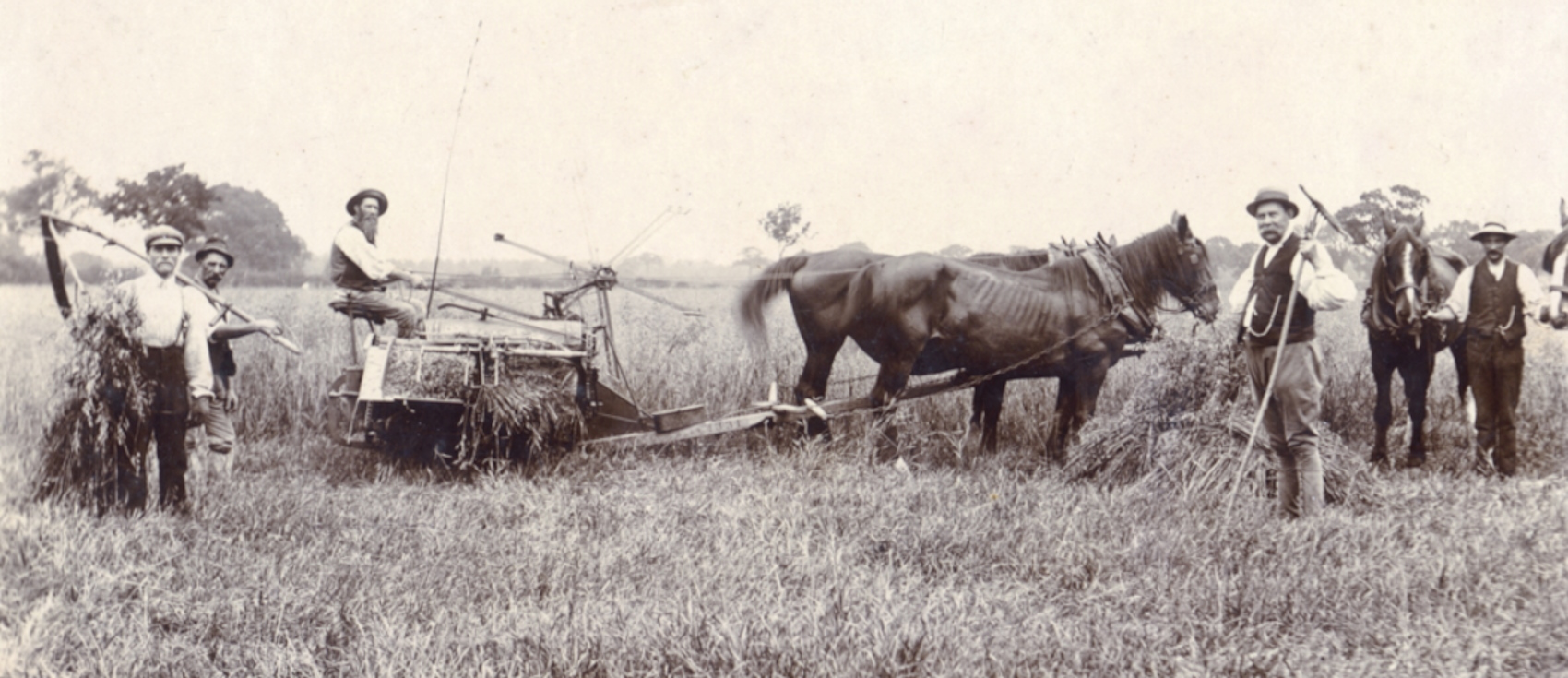
John Rowe, a tenant farmer, was born in Suffolk, in 1853 He first farmed in North Norfolk and then moved to Potash Farm, Hethel, in the late 1800s. (The Farmhouse, whose foundations are now underneath the Design Centre at Lotus, was the closely connected with the story of the Stanfield Hall murders of 1848 – subsequently, reported around the world.)
John Rowe’s final farm tenancy was at Hill Farm, from about 1913.
Horses were John Rowe’s speciality. He kept stallions which included a “Pure Bred Suffolk Stallion” called Boulge Musketeer. Bred by Sir Robert Easton White at Boulge Hall, near Woodbridge. This was close to John’s own birthplace.
A printed pedigree card for Boulge Musketeer provides the fees and lists the stallion’s multi-generational parentage.
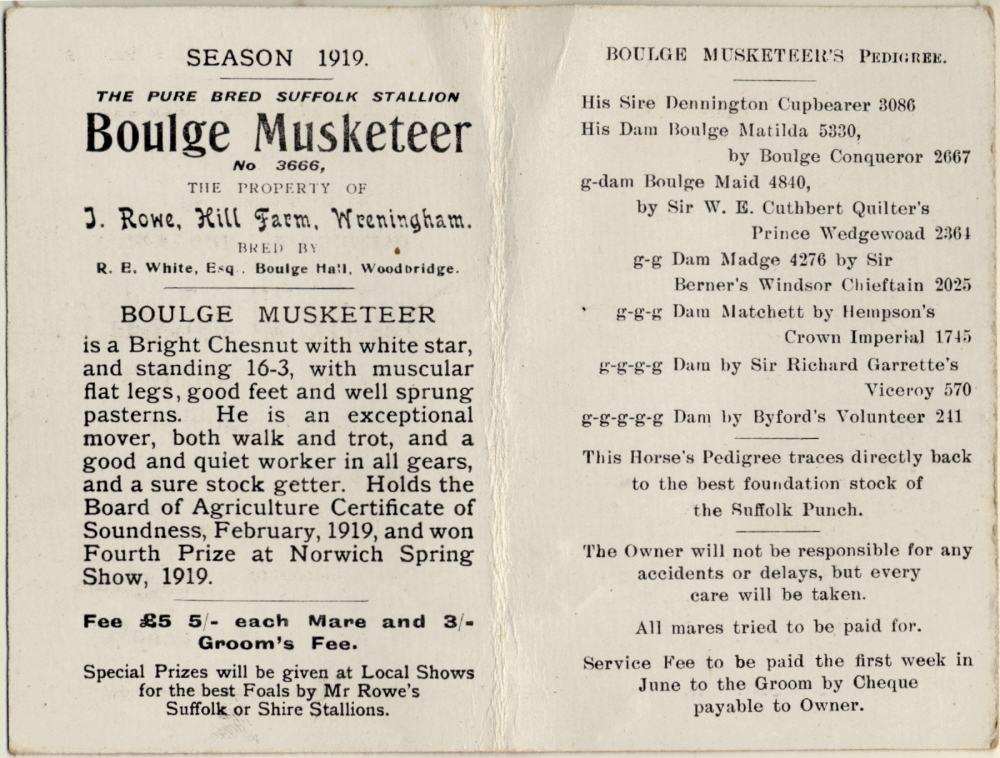
John Rowe;’s daughter, Pansy, (1888 – 1972) was a teacher and Sunday School teacher for many years.
In her school days, in the early 1900s, she won a Norfolk-wide writing competition on nature and wildlife.
Her life and contributions to the church and wider villager were celebrated on one of the new oak head-stocks when Wreningham’s church bells were rehung in the early 1980s.
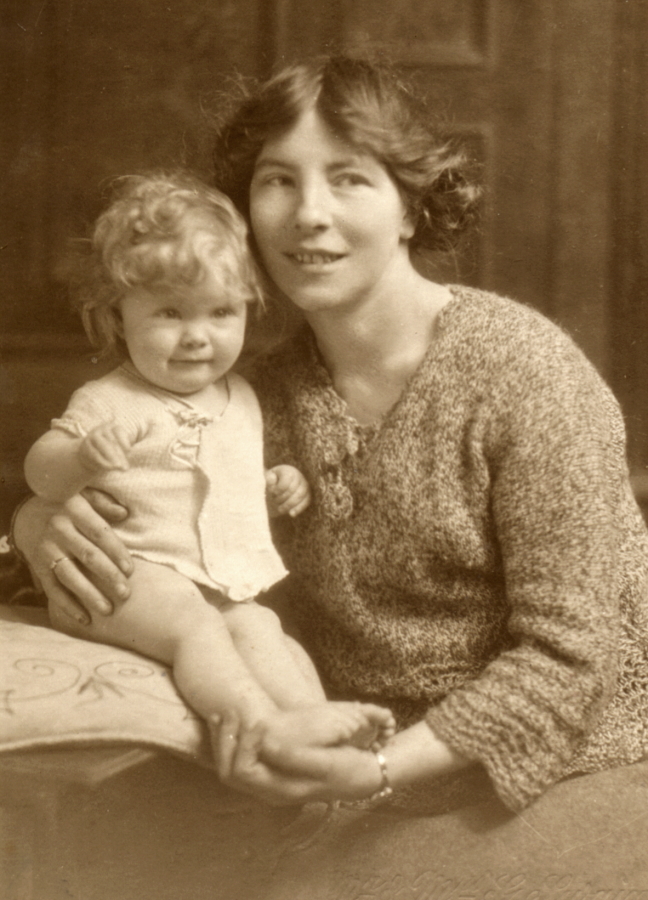
Although our website information needs to be broken down into many separate strands, we must not forget that the village’s population often lived and worked as a close community. During any given period, they would have (mostly!) known each other; they would often have co-operated to surmount shared challenges, too. An excellent and well documented example – from 1917, describes John Rowe giving assistance to father and son farmers Dennis William Long and Victor Long, at Fir Grove. The occasion was when a Fir Grove pony, pulling a trailer of milk to Ashwellthorpe station, fell down and eventually died. John Rowe even helped the Longs’ in the subsequent court case – which is all described here. (Unlike the vet who might well have assisted the Longs’s case – had he bothered to attend court.)
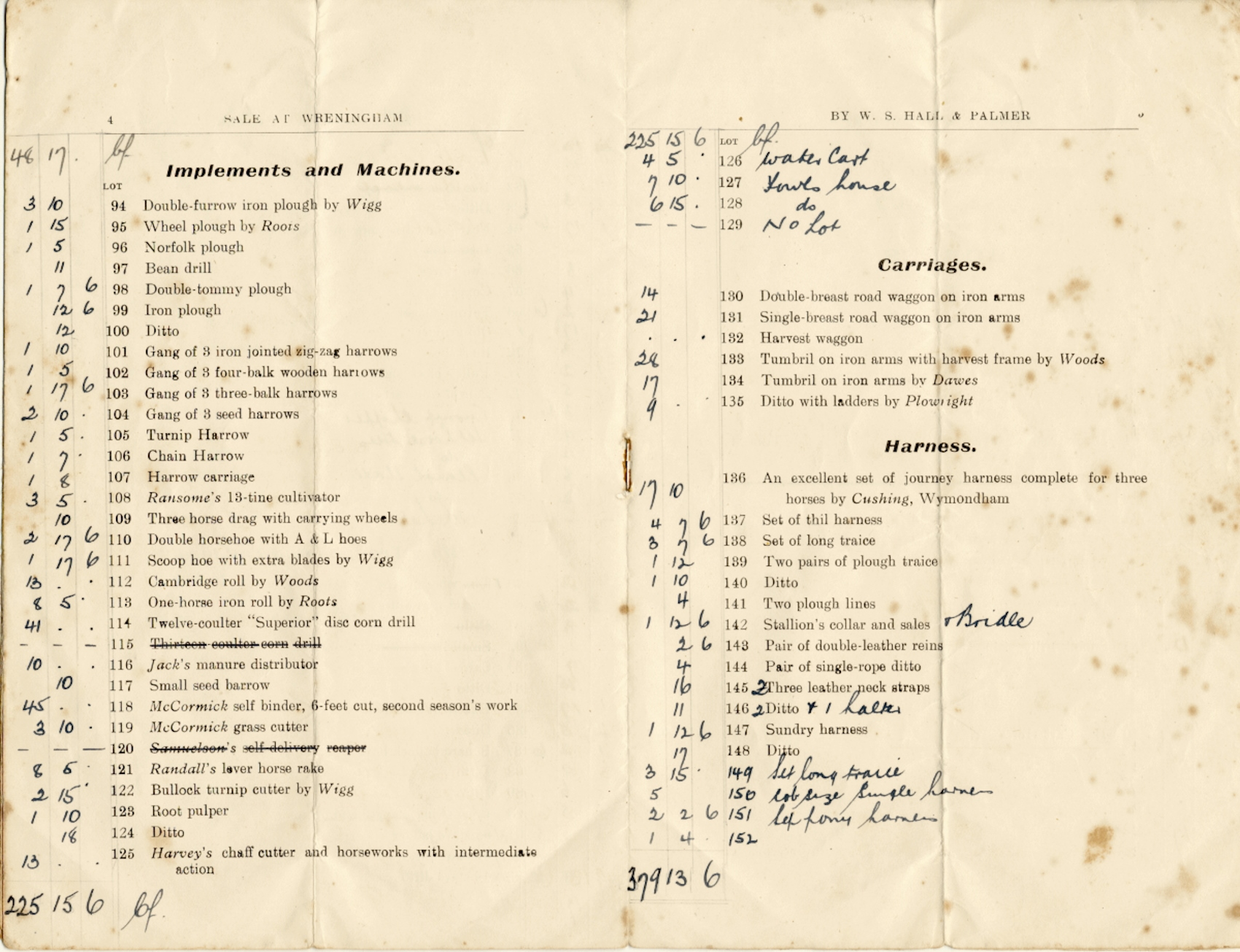
auction’s achieved prices are written alongside each of the lots. This may have been his own copy of the document.
Two days before Michaelmas, on the 27th September, 1920, there was a farm sale held at Hill Farm and tenant John Rowe retired from farming. He was about 68 and moved to Highfield Cottage in Church Road. The sale of his livestock, dead-stock and farm equipment are listed in a surviving auction booklet. What makes this document special is the achieved sales prices have been hand-written against every item. It’s interesting to note that, whilst Boulge Musketeer, was included in the auction catalogue, the stallion appears to have been withdrawn from the actual sale. Perhaps John Rowe changed his mind about disposing of his precious animal?
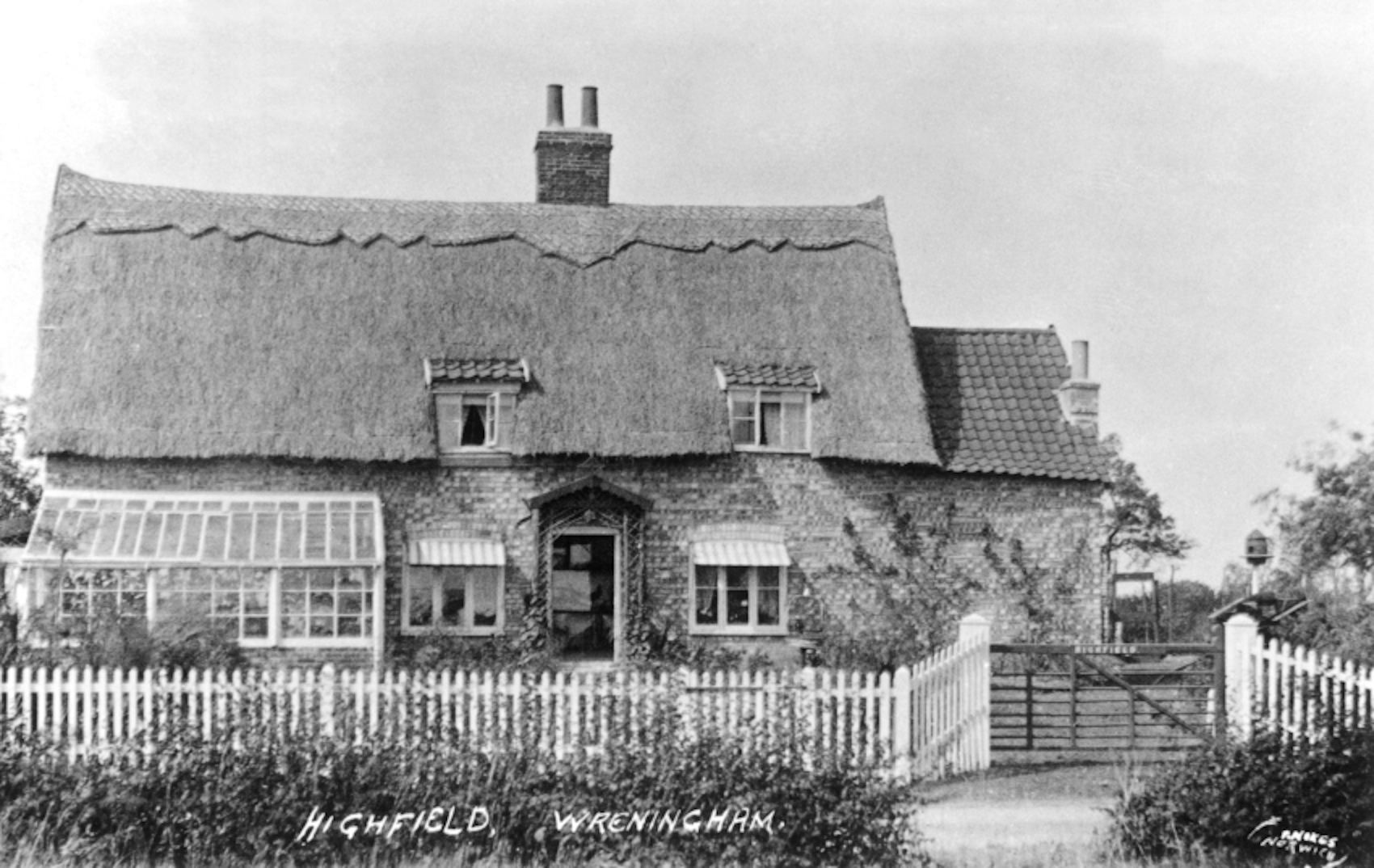
Highfield is understood to have remained in the Rowe family until the late 1960s.
